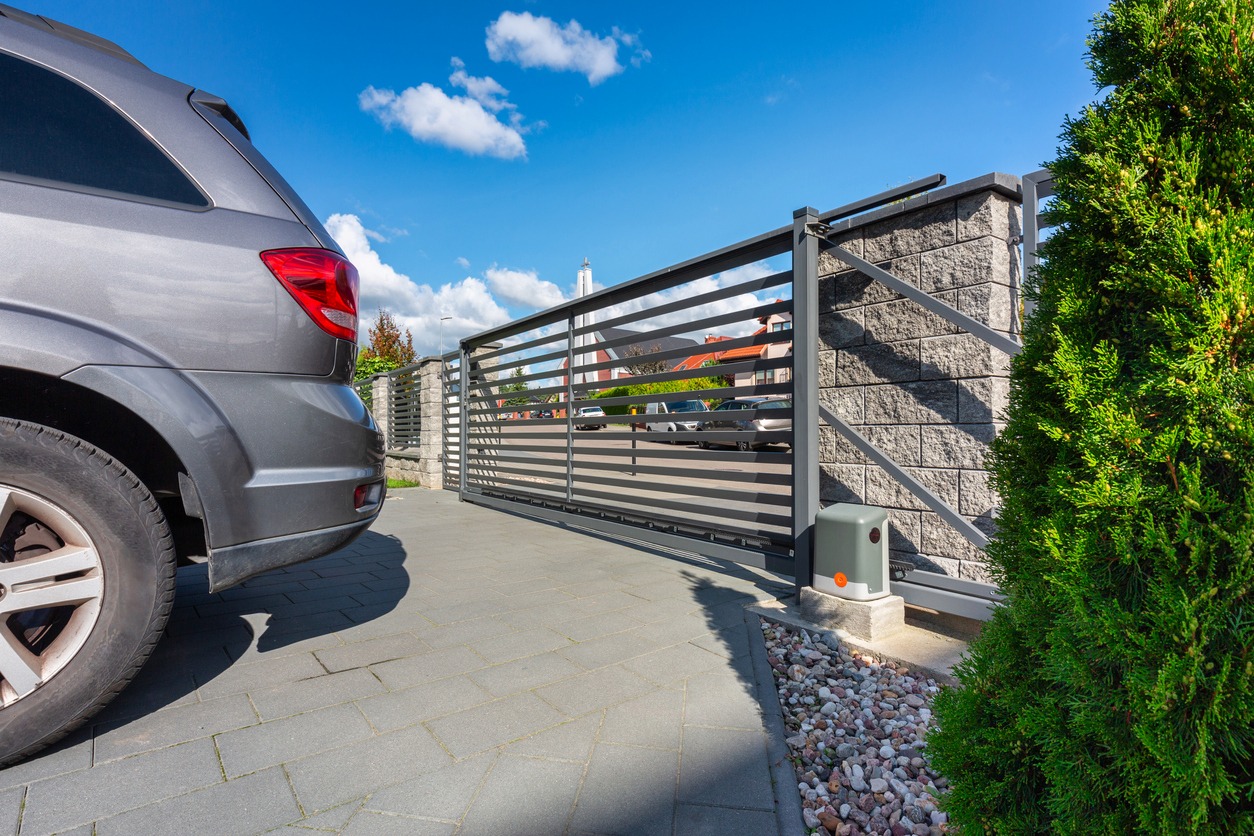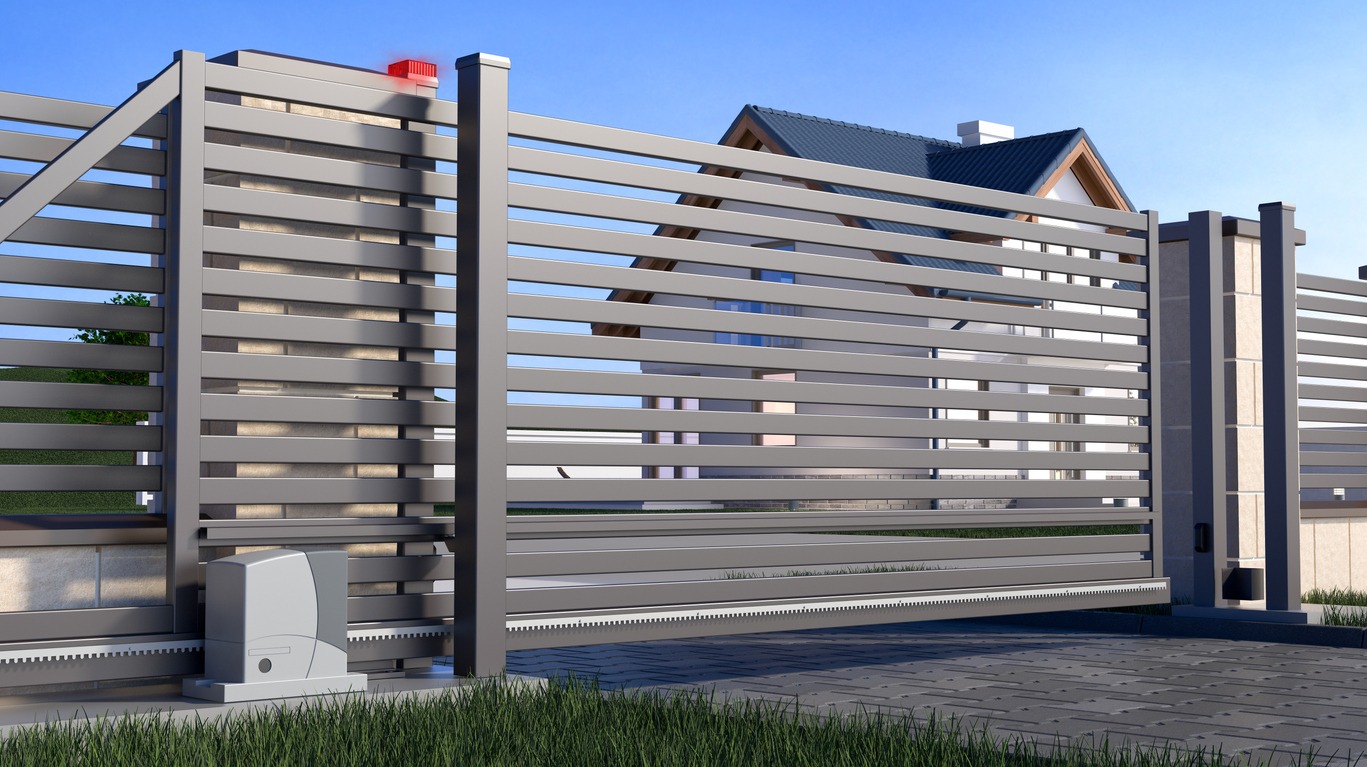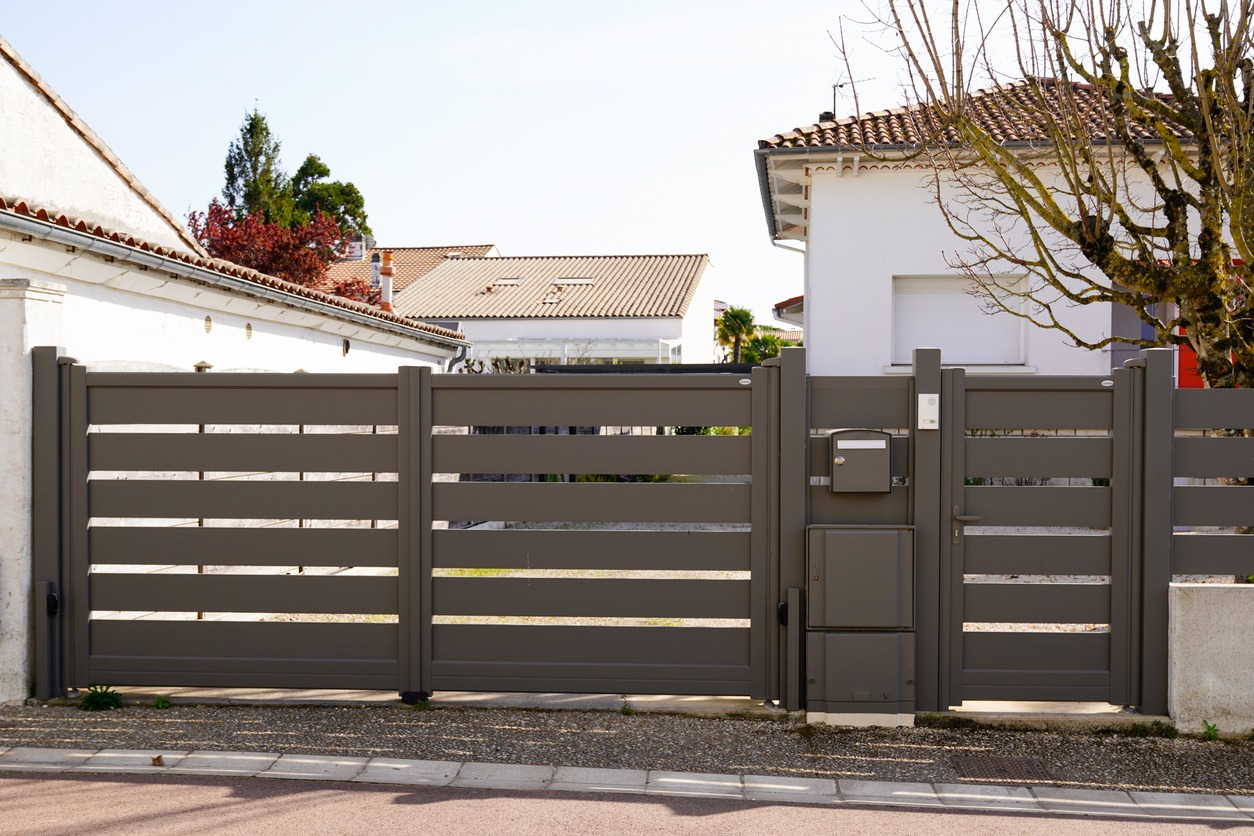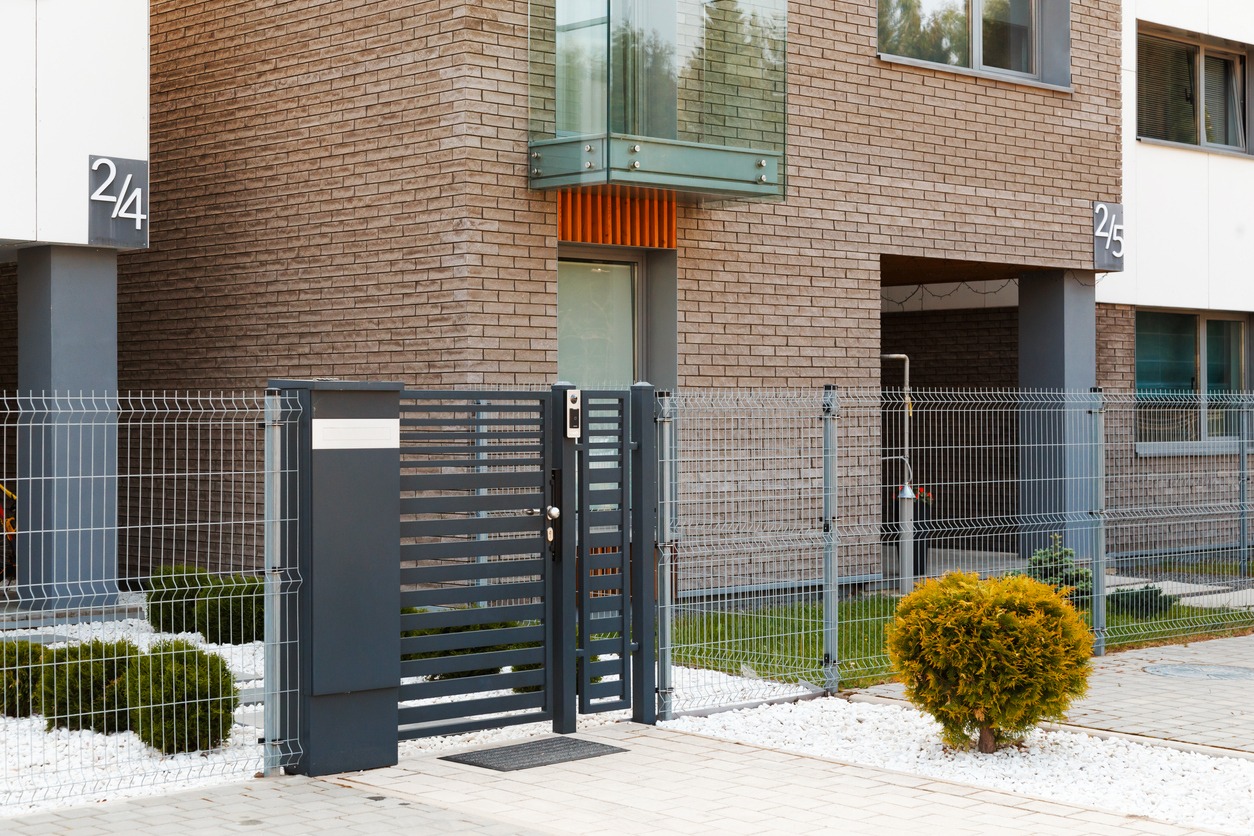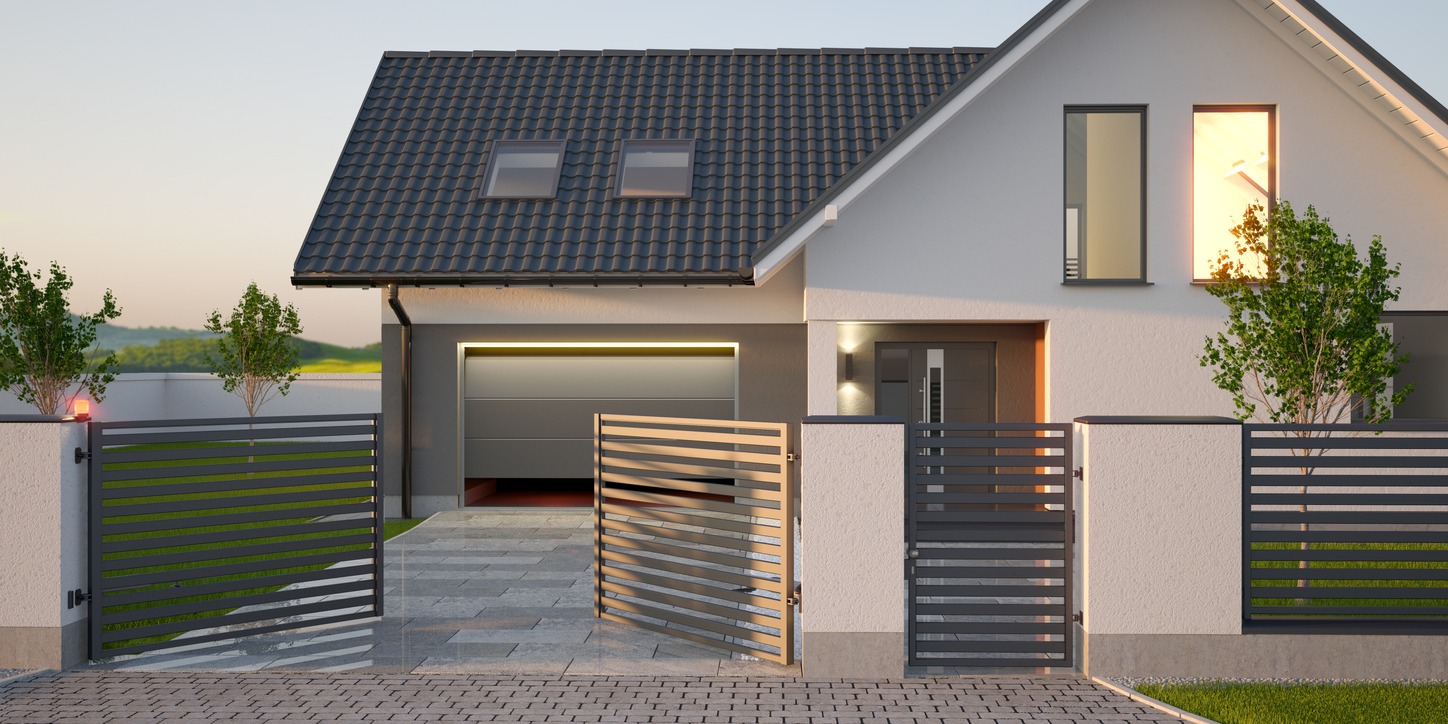Introduction
The various substances and alloys used in the construction and assembly of gates are called “gate hardware materials.” These components are essential in establishing the gate’s practicability, longevity, and attractiveness from an aesthetic standpoint. Any person who owns property must make the important decision of which material should be used for the gate hardware. This decision not only affects the gate’s functionality but also makes a significant contribution to the overall appearance and atmosphere of the property.
When it comes to the materials used for gate hardware, there is a wide variety of options available, each with specific qualities and advantages. To make an educated decision that caters to your specific requirements and preferences, it is essential to have a thorough understanding of the properties of each material, which includes everything from steel and aluminum to wrought iron and wood.
What is Gate Hardware?
The term “gate hardware” refers to the collection of components and materials that are used in the building of gates, as well as their installation and operation. These components are extremely important in ensuring that the gate operates without any hiccups and safely and dependably. The term “gate hardware” refers to a wide variety of components that are essential to the operation of the gate as a whole. These components include latches, hinges, handles, and locks.
Importance of Gate Hardware Materials
- When it comes to determining the efficiency and durability of a gate, the selection of the materials used for the gate hardware is of critical importance. The use of appropriate materials can improve the gate’s longevity, level of protection, and aesthetic appeal. On the other hand, selecting materials that are inappropriate or below standard can result in premature wear and functionality that is reduced.
- Choosing materials for the gate hardware that is of high quality ensures that the gate will be able to withstand the rigors of daily use, endure a variety of weather conditions, and provide a level of security that is adequate to satisfy the requirements of the property owner. In addition, the use of materials that were carefully selected contributes to the gate’s overall aesthetic, which, in turn, complements the architectural style of the property and enhances the property’s curb appeal.
Overview of Gate Hardware Components
The hardware for a gate is made up of a variety of different parts, each of which performs a particular job. The following is an outline of some of the most important aspects:
1. Hinges:
The gate can swing open and close thanks to the hinges, which act as the pivot point for the structure. They are available in a variety of materials, such as steel, aluminum, and wrought iron, and each of these materials offers a different level of strength and durability than the others.
2. Latches and Locks:
The gate is held securely in the closed position by latches as well as locks. They are available in a wide range of designs, from basic gravity latches to more complex electronic locks, giving customers a variety of options to choose from to meet their specific safety requirements.
3. Handles and Knobs:
The points of contact for operating the gate are various types of knobs and handles. They are available in a wide variety of configurations and constructions, making it possible to personalize both their practicality and their appearance.
4. Closers and Springs:
After being opened, the gate can then be closed automatically thanks to closers and springs that assist in doing so. They are especially helpful in high-traffic areas, where maintaining the gate’s closed position consistently is vitally important.
5. Gate Stops:
Stops on gates prevent the gate from swinging too far in either direction, thereby reducing the risk of damage to the gate, its hinges, and the structures in the surrounding area.
6. Bolts and Fasteners:
To reliably attach the various components of the gate, bolts, and fasteners are used. This ensures that the gate is both stable and dependable.
7. Decorative Ornaments:
The gate’s aesthetic value can be improved by the addition of these optional components that have a decorative effect. Scrolls, finials, and various other embellishments are sometimes included in them.
8. Finishes and Coatings:
Finishes and coatings add an extra layer of protection to the gate hardware, assisting in the prevention of rust and corrosion, particularly in environments that are exposed to the elements.
Property owners can make well-informed decisions regarding the materials used for their gates if they have a solid understanding of the function and significance of each component of the gate hardware. Property owners can choose the right combination of hardware materials to ensure that their gate functions optimally and enhances the overall look of their property by taking into consideration a variety of factors, including the intended use of the gate, the environmental conditions, and the desired aesthetic.
Types of Gate Hardware Materials
When it comes to choosing the material for the gate hardware, homeowners have a wide variety of options at their disposal to think about. Every material has its own distinct set of properties, advantages, and fields in which it is best suited to be used. In the following paragraphs, we will discuss the various materials that are used to make gate hardware, and we will provide insightful information that will assist you in making an educated choice.
1. Metals
Materials for metal gate hardware are highly sought after because of their superior strength, longevity, and adaptability. They are favored because of their capacity to deliver dependable safety while also presenting a diverse assortment of design opportunities.
Steel:
Steel is a strong alloy that is primarily composed of carbon and iron, and it is used in the manufacture of gate hardware. It is well-known for its strength, resiliency, and resistance to corrosion, which makes it a popular choice for gates that require hardware that is robust and long-lasting because of these qualities.
Iron:
Iron is a metal that is known for its decorative appeal and is known to be both strong and malleable. Iron gate hardware is crafted from iron. It has the potential to be intricately designed, and it offers a traditional and ornate appearance. Iron, on the other hand, has the potential to rust over time if it is not properly coated or maintained.
Aluminum:
Aluminum gate hardware is not only lightweight but also resistant to corrosion and long-lasting. It is favored for its ability to withstand the elements that are found outside, which makes it an excellent choice for gates that will be exposed to the elements in their natural state. In addition, aluminum is very malleable and can be colored and shaped to suit a variety of aesthetic needs.
Stainless Steel:
Hardware for gates made of stainless steel is an alloy that is resistant to corrosion and is primarily composed of iron, chromium, and nickel. It is well known for its sleek and contemporary appearance, as well as its high level of durability, even in harsh environments. The durability and low upkeep needs of stainless steel are two of the primary reasons for its popularity.
2. Wood
Hardwood:
Oak, mahogany, teak, and maple are some examples of dense and long-lasting hardwood species that are used in the construction of hardwood gate hardware. It is well-known for its durability, longevity, and resistance to decay in addition to its strength. The natural and classic appearance that hardwood hardware provides is a nice complement to gates made of wood.
Softwood:
The hardware for softwood gates is typically crafted from less dense species of wood such as pine, cedar, or fir. Even though it may not be as long-lasting as hardwood, it is frequently more readily available and, with the right treatment and ongoing maintenance, it can still be used for gates.
Composite Materials:
Wood fibers and plastics that have been recycled are typically included in the composite materials that are used in the fabrication of composite gate hardware. This kind of hardware strikes a good balance between the earthy look of real wood and the long-lasting quality of materials made of synthetic materials. The composite hardware is not susceptible to damage from rot, insects, or the elements.
3. Plastics and Polymers
PVC (Polyvinyl Chloride):
The synthetic plastic material known as PVC is used in the construction of gate hardware, and it is prized for its longevity, moisture resistance, and low maintenance requirements. Because it does not rot, warp, or corrode, it is frequently used for gates in environments that are humid or wet.
Polyethylene:
Polyethylene is a thermoplastic polymer that is used to manufacture gate hardware. This material is known for its high strength-to-weight ratio as well as its resistance to chemicals, moisture, and impact. It is ideal for use in a variety of gate applications because it is both lightweight and durable, two qualities that are highly prized.
Nylon:
A synthetic polymer known for its high tensile strength, resilience, and resistance to wear and tear, nylon is the material of choice for gate hardware that is made of nylon. It is frequently used in the hinges, latches, and other movable components of gates, providing smooth and dependable operation in all of these applications. In addition to this, nylon has a reputation for being resistant to rust and chemicals.
Properties and Characteristics
When it comes to selecting hardware for a gate, it is essential to take into consideration the qualities and traits of the various materials that are involved. If you make the right decision, you can ensure the longevity of your gate, improve its functionality, and even improve its overall aesthetics.
A. Strength and Durability
1. Steel
The exceptional strength and durability of steel gate hardware have earned it a well-deserved reputation. Its primary constituents are iron and carbon, which give it a robust structural integrity that enables it to withstand heavy use as well as forces from the outside. As a result of this, steel hardware is an excellent choice for gates in high-traffic areas or in areas that require an increased level of security.
2. Iron
Iron gate hardware allows for ornate design possibilities in addition to its inherent strength. Even though it is not as resilient as steel, it still provides a sturdy option. Iron hardware can last for decades if it is properly maintained, making it a choice that will stand the test of time for gates that want a traditional and decorative touch.
3. Aluminum
The fact that aluminum is resistant to corrosion and has a lightweight composition contributes to the material’s exceptional durability as gate hardware. Because it resists rust and other forms of deterioration and yet maintains its structural integrity, it is an excellent choice of material for gates that are open to the elements.
4. Stainless Steel
When it comes to materials for gate hardware, stainless steel is the undisputed king of durability. Even in harsh environments, its exceptionally high corrosion resistance is due to the composition of its core elements, which primarily include iron, chromium, and nickel. Hardware made of stainless steel is famous for having a long lifespan and requiring very little upkeep over its lifetime.
B. Corrosion Resistance
1. PVC (Polyvinyl Chloride)
PVC gate hardware has excellent resistance to corrosion that can last for many years. Because it is made of synthetic plastic, it is resistant to the negative effects that moisture can have. Because of this, it is an excellent option for gates that are located in environments that are humid or wet. Even when subjected to severe weather, this material does not compromise the structural integrity it was designed to provide.
2. Stainless Steel
Stainless steel has a remarkable resistance to corrosion, which has earned it a lot of praise. The presence of chromium and nickel in the material contributes to the formation of a protective layer that acts as a barrier against rust and other types of corrosion. Because of this characteristic, stainless steel hardware is an excellent option for gates that will be exposed to corrosive elements, such as moisture or salt.
C. Weight and Density
1. Aluminum
The exceptional lightness of aluminum gate hardware is one of its most notable characteristics. This quality is especially useful for larger gates because it lowers the amount of stress placed on hinges and any other moving components. In addition to this, it simplifies and streamlines the installation process.
2. Hardwood
Although dense and long-lasting, the hardware for hardwood gates is typically heavier than that of other types of wood. It is essential to consider this aspect when selecting hinges and latches for the gate, as it can have a positive impact on the overall stability and strength of the structure.
D. Cost and Affordability
1. Softwood
The cost of softwood gate hardware, which is typically constructed from wood species that are more easily sourced, such as pine or fir, is typically lower than that of its hardwood counterpart. Although it is not as durable as other options, it still provides a cost-effective solution for gates in environments that are not as demanding.
2. Composite Materials
The aesthetics of natural wood and the durability of synthetic materials can be harmoniously combined with the use of composite gate hardware. It may have a higher cost initially; however, due to its resistance to rot, insect damage, and weather damage, it will likely result in lower long-term costs for maintenance and replacement.
E. Aesthetic Considerations
The overall aesthetic appeal of the gate is also significantly influenced by the material that is selected to be used for the gate hardware. Whether you want to achieve a traditional and ornate appearance with iron hardware, a contemporary and sleek appearance with stainless steel, or a natural and warm feel with hardwood, the visual impact of the material should be carefully considered to complement the design of the gate and the surroundings.
To make a well-informed decision, it is essential to have a solid understanding of the qualities and features offered by the various materials used in gate hardware. You can choose the construction material that is best suited for your particular gate undertaking if you take into account aspects such as its resistance to corrosion, its strength, its weight, its price, and its aesthetic qualities. This methodical approach makes certain that your gate not only functions properly but also increases the value of your property and improves its aesthetic appeal.
Gate Hardware Materials: Applications and Considerations
To ensure that your gate not only functions properly but also satisfies the specific requirements of the application for which it was designed, it is essential to select the appropriate material for the gate hardware.
A. Residential Gates
Residential gates are important entry points to homes because they provide security, and privacy, and enhance the home’s overall curb appeal. Gates are also known as front doors. Aesthetics, financial constraints, and the level of durability that is desired are all important considerations when selecting the material for the gate hardware.
1. Wooden Gate Hardware
Wooden gates are a classic option for residential properties because they offer a cozy and natural appearance to the space. Options such as hardwood hinges and latches are great choices for the gate’s hardware because they enhance the appearance of the gate while also providing sufficient strength for everyday use. To ensure the longevity of a product, it is common practice to use screws made of corrosion-resistant materials or stainless steel.
2. Metal Gate Hardware
Metal gates, such as those made from steel, iron, or aluminum, are preferred because of their superior strength and longevity. Hardware made of stainless steel or metal that has been powder-coated is recommended for use in residential settings. This not only provides a sturdy foundation but also a visually appealing finish that can complement several different architectural styles.
3. Plastic Gate Hardware
In residential settings, particularly in regions with high levels of humidity or that are located near water sources, the use of plastic gate hardware, particularly that which is fabricated from PVC or other long-lasting polymers, is common. Because of their superior resistance to corrosion, PVC hinges, latches, and locks are an excellent choice for environments that are either humid or near the coast.
B. Commercial and Industrial Gates
When compared to residential gates, commercial and industrial gates are typically put through more wear and tear and must withstand more difficult conditions. Therefore, the materials that make up the hardware must prioritize their durability, strength, and resistance to wear and tear to be suitable for these applications.
1. Heavy-Duty Metal Hardware
Heavy-duty metal hardware constructed from steel or other durable alloys is an absolute necessity for gates used in commercial and industrial settings. This includes locks, brackets, and hinges that have been designed to withstand high levels of force as well as frequent use. The utilization of components made of reinforced steel ensures that the gate can meet the requirements of its setting.
2. Corrosion-Resistant Materials
Gates that are used in commercial and industrial settings are frequently subjected to more severe environmental conditions, such as industrial pollutants, chemicals, or extreme weather. Therefore, it is essential to make use of materials such as stainless steel, aluminum, or specialized coatings that are resistant to corrosion. Because of the protective barrier that these materials provide against rust and degradation, the gate will last for a very long time.
3. High-Traffic Considerations
Gates in commercial and industrial settings may be subjected to a high volume of traffic, which may include both vehicles and pedestrians in addition to machinery. As a consequence of this, the moving parts of hardware, such as hinges, wheels, and tracks, need to be constructed so that they can withstand consistent use without becoming worn. To avoid failure at an earlier stage, the selection of materials should emphasize how durable and reliable they are.
Factors Influencing Material Selection
The decision of which material to use for the gate hardware must be made after giving careful consideration to several different factors. When determining which material is the most appropriate for your particular application, each factor, from the limitations imposed by your budget to the preferences you have regarding the appearance of the finished product, plays an important role.
1. Budget Constraints
When deciding on the materials for the gate hardware, one of the most important factors to take into account is the available budget for the project. It is essential to find a balance between quality and affordability when selecting materials, as the prices of different types of materials can vary greatly. For example, the upfront cost of stainless steel may be higher, but it has a long lifespan and requires little maintenance, so it could end up providing cost savings in the long run. On the other hand, options that are friendly to one’s wallet, such as specific kinds of wood or composite materials, can provide an economical solution without sacrificing the functionality of the product.
2. Environmental Factors
When choosing a material, it is essential to take into account the conditions of the location where the gate will be installed. Aspects to take into account include proximity to water sources, as well as exposure to various weather conditions and levels of humidity. Materials that are resistant to corrosion, such as stainless steel or PVC, are recommended to be utilized in the construction of gates in environments with a high level of humidity. Materials that can withstand extreme temperatures and levels of moisture should be given priority in environments with harsher climates. Additionally, consumers who are concerned about the environment may choose sustainable materials that have a smaller negative impact on the environment.
3. Gate Functionality and Usage
When choosing a material, it is necessary to have a good understanding of how the gate will be used and the functionality it is supposed to provide. Strong materials, such as heavy-duty steel or corrosion-resistant alloys, are required for gates that are located in commercial or industrial settings because these settings see a high volume of foot traffic. Materials such as wood or ornamental iron may be a better fit for residential gates that are primarily installed for decorative or privacy purposes and are located in residential areas. To ensure the gate’s smooth operation and long-term durability, the type of hardware components, such as hinges, latches, and locks, should correspond with the gate’s intended purpose.
4. Design Preferences
A large number of property owners and managers give significant weight to the question of whether or not the gate has an appealing appearance. The appearance and texture of the gate as a whole can be significantly altered depending on the material that was used. Wrought iron and hardwood are two materials that can give the appearance of being timeless and classic respectively. Materials such as stainless steel or aluminum are good choices for those looking for a contemporary appearance with a slimmer profile. In addition, composite materials can provide an adaptable solution that combines the natural beauty of the environment with long-lasting performance.
5. Maintenance Requirements
When choosing between options, it is important to take into account the varying levels of upkeep that are required by the various types of materials. Some materials, like stainless steel or PVC, have a low maintenance requirement because they are highly resistant to rust or decay and require little to no cleaning. In contrast, certain types of wood may require regular sealing or staining to protect it from damage caused by moisture and ultraviolet light. It is important to understand the maintenance requirements of each material so that the gate can be kept in the best condition possible over time.
Maintenance and Care Tips for Gate Hardware Materials
The hardware on your gate is its unsung hero, as it ensures the gate’s smooth operation and contributes to the overall charm of your property. A little bit of care and attention goes a long way toward ensuring that it continues to function at its peak. The following are some important suggestions regarding upkeep:
1. Regular Cleaning:
Different strategies are required for the various types of materials. When cleaning metals, use mild detergents; when cleaning wood, use gentle soap; and when cleaning plastics and polymers, use appropriate cleaners.
2. Lubrication:
To reduce or eliminate the risk of friction, moving parts should regularly be oiled. Lubricants based on silicone perform exceptionally well on metal components.
3. Rust Prevention:
When it comes to protecting metal gates from moisture, you might want to think about applying a rust-resistant coating or primer.
4. Wood Protection:
Sealants and protective finishes should be applied to areas to protect them from moisture, ultraviolet rays, and wear and tear.
5. Inspection:
Make it a habit to check for damaged or loose components regularly. Take immediate action to address any problems to prevent further damage.
Conclusion
The design and functionality of a gate are both significantly impacted by the materials that are chosen for the gate hardware. Each type of material has its own distinct set of advantages and qualities, which can affect aspects such as its longevity, resistance to corrosion, and overall aesthetic appeal. Property owners are better able to make educated decisions that are in line with their particular requirements if they take factors like budget, environmental conditions, and usage requirements into consideration.
It is essential to perform routine maintenance and care on gate hardware materials to ensure their longevity and optimal performance. Property owners can extend the lifespan of their gate hardware by following best practices for cleaning, lubricating, and repairing it. This ensures that the gate hardware continues to function reliably and contributes to the overall aesthetic appeal of the property. When designing a safe, practical, and aesthetically pleasing entrance for any type of property, selecting the appropriate materials for the gate hardware is one of the most important steps.
